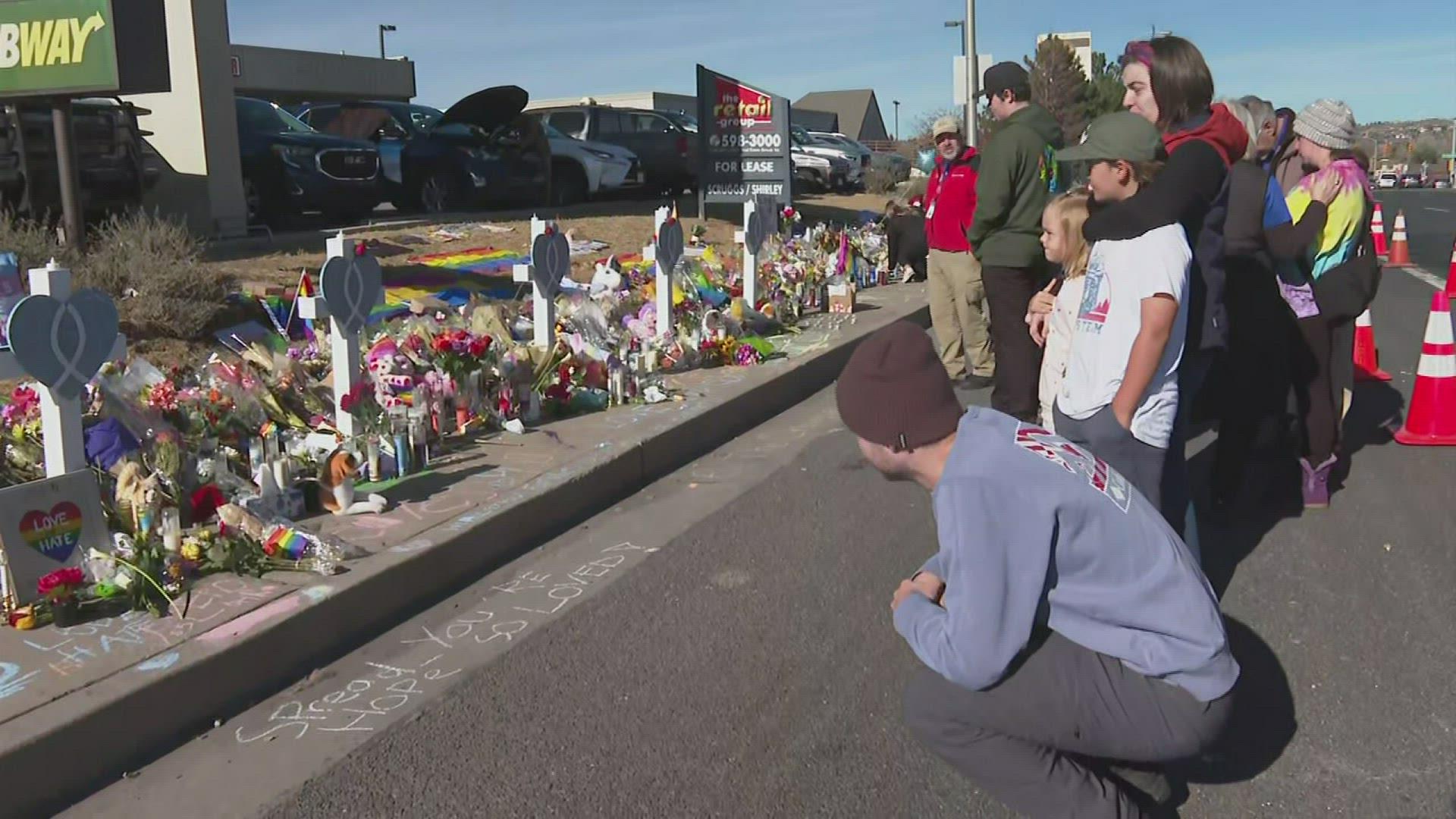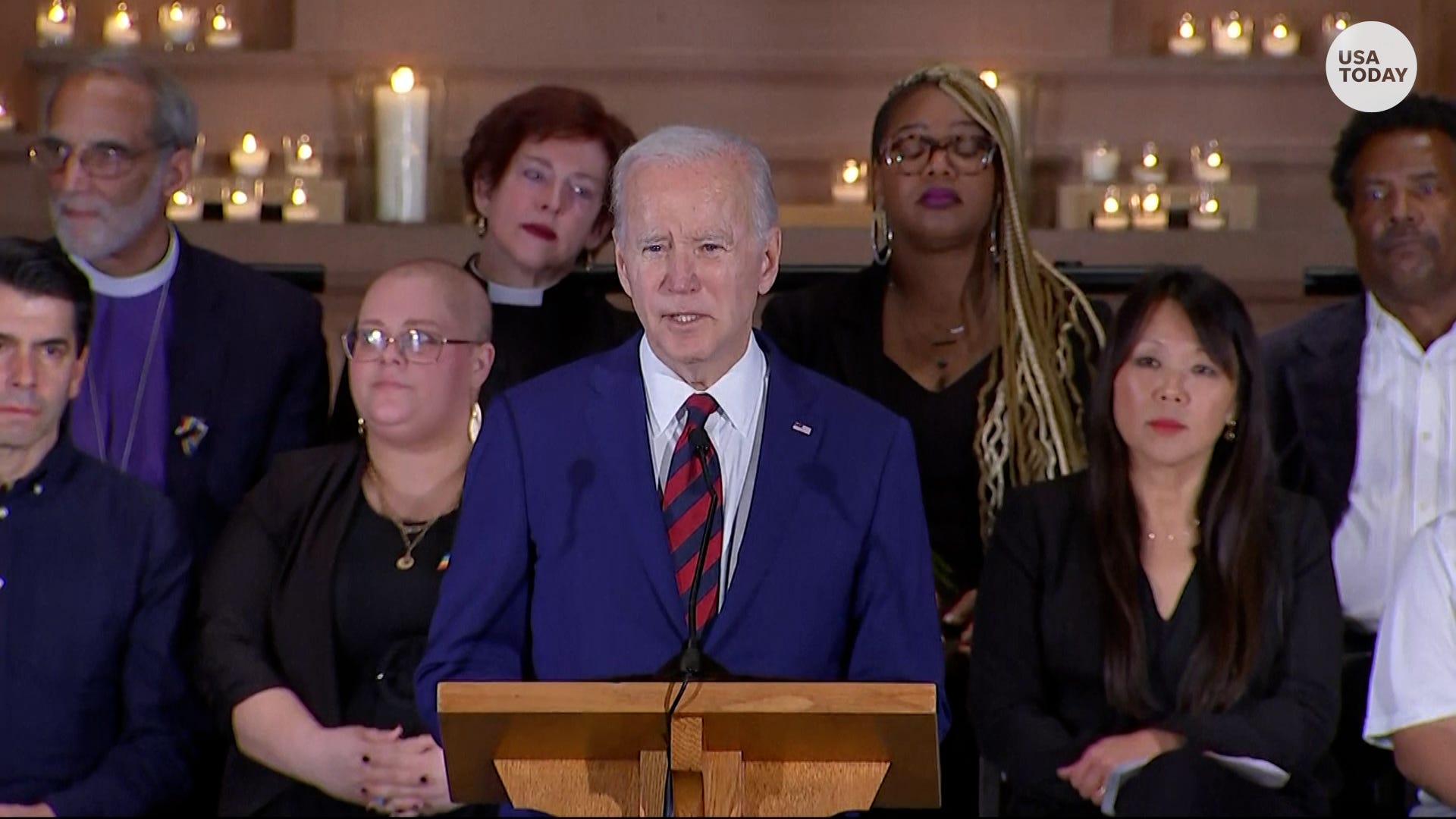
WASHINGTON – The FBI has been issuing more seizure orders for guns sold to suspected prohibited buyers than at any time in the history of the federal firearm background check system, according to the most recent data compiled by the bureau.
More than 6,300 such referrals were transmitted to the Bureau of Alcohol Tobacco Firearms and Explosives in 2020 to take back weapons from buyers when background checks later determined they may have been ineligible because of criminal records, mental health histories, disqualifying military service records and other bans.
Another 5,200 directives were issued in 2021, adding to the largest two-year total by far since the National Instant Criminal Background Check System began publishing data in 1998.
The numbers follow years of surging firearm sales. Yet they also underscore a longstanding tension in the system: federally licensed dealers are permitted to proceed with weapons sales in cases when background checks are not completed within the required three business days.
Trump, Russia, Biden: The US has 3 special counsel investigations at once. What are they?
Seizure orders are issued when analysts later conclude that buyers likely should have been barred.
The FBI noted that the retrieval orders represent a fraction of the millions of gun checks processed in 2020 and 2021. The 2022 data is not yet available.
“Historically, the NICS Section has experienced an increase in firearm retrieval referrals as increases in overall background check volume occurs,” the FBI said in response to questions from USA TODAY.
The ATF said the agency investigates “any delayed denials referred to us from the FBI, especially those resulting in the transfer of a firearm to a person who is prohibited from possessing firearms.”
The agency referred questions about possible causes for sudden changes in the data to the FBI, but suggested that “an increase in total background checks could foreseeably have a corresponding increase in delayed transactions and thus delayed denials.”
Background checks shortcomings: Gun violence policy is focusing on mental health but federal records still lack some states
Soaring gun seizures partly due to a spike in firearm sales during COVID-19
But analysts suggested that the unusual spike in seizure orders is due in part to the aftershocks of the coronavirus pandemic. Not only did gun sales skyrocket during the height of the pandemic – a record 39.6 million background checks were initiated in 2020 – placing increased pressure on the background check system.
As a result, FBI examiners also were more likely to find that COVID-19 had emptied local courthouses and prosecutors’ offices around the country, where clerks and administrators provide crucial assistance in vetting the criminal histories of prospective gun buyers, analysts said.
“The first thing you expect when there is a spike in gun sales is that there will be a corresponding increase in delayed denials,” said Stephen Morris, a former assistant FBI director who once oversaw NICS operations. “The timing clearly suggests that COVID was a factor in this. There was an absence at these offices that play a role in the overall (background check) process. I can’t help but believe there was some serious inefficiencies.”
ATF and bump stocks: Why a federal appeals court ruling on Trump’s bump stock ban is more about agency power than guns
David Chipman, a former ATF official who helped oversee the firearm retrieval program during his time at the agency, also pointed to COVID’s transformation of the workplace as almost certainly contributing to the troubling increase in retrieval orders.
“I would have been surprised if there wasn’t a spike,” said Chipman, the Biden administration’s first nominee to lead the ATF. “COVID made the process more difficult.”
The FBI said the volume of background checks and “other operational aspects can be impacted by a variety of factors such as COVID,” but it was “not possible to pinpoint the full effect of any one particular factor.”
GA grand jury foreperson’s media tour: Georgia grand jury foreperson’s unusual media tour likely heartburn for Trump inquiry
A ‘public safety risk’
The recent spike in retrieval orders represent the largest totals since 2000 when 5,056 were issued.
While the numbers accounted for a small percentage of the 8.5 million transactions vetted by the NICS system that year, the FBI described the potential “public safety risk” in stark detail at that time.
The 2000 annual NICS’ operations report recounted an incident in which a Cleveland-area dealer proceeded with a gun sale to a gang member when the required background investigation was not completed within the three-day period.
The day after the sale, an associate of the buyer, also a gang member, used the gun to rob an East Cleveland restaurant, according to the FBI report.
Those problematic transactions, the FBI report concluded, place…”demands on law enforcement agencies, particularly the ATF, which has the jurisdiction to retrieve the firearm.”
“Retrievals expose law enforcement agents to potential risks and divert ATF’s already limited special agent resources from other investigations,” the report stated.
DOJ to appeals court: Donald Trump can be sued over role in Jan. 6 Capitol riot
Chipman said the risks to law enforcement have never abated and are “baked in” to a background check system that favors gun buyers and dealers.
The three-business-day deadline for background check examiners does not account for the crushing volume of transactions that increases almost every year, he said.
“This is a security system set up in such a way as not to inconvenience gun buyers and sellers,” Chipman said. “There is no other security system that I’m aware of that is set up in this way. Think of it: the TSA (Transportation Security Administration) was set up to prevent another 9/11. But the nature of that job requires putting people at some inconvenience.”
Morris said the three-day deadline will remain a point of tension in the system, especially during surges in firearm sales.
“One thing that could be done that doesn’t impede anybody’s right to own a gun is to extend that time period,” Morris said, adding that the bureau will likely face never-ending staffing challenges to meet the demand.
“You cannot staff your way out of this problem.”
Crimes and firearm purchases: First federal gun crime report in 20 years shows shrinking time between firearm purchase, usage in crimes
But the National Rifle Association, long the most influential force in the powerful gun-rights lobby, said adequate safeguards already exist and that the retrieval orders “illustrate that existing law has always had safeguards if law enforcement authorities are willing to use them.”
“The three-day safety valve is essential to preserving the constitutional rights of law abiding Americans,” NRA spokesperson Amy Hunter said. “Without it, good citizens could be penalized merely because of mistakes or gaps in records. It ensures that the burden of proof remains on the government, where it belongs, when depriving someone of the exercise of their constitutional right to obtain a firearm.”
Daniel Webster, director of the Johns Hopkins Center for Gun Violence Solutions, said the numbers are a byproduct of a unique time in American history.
He said the historic surge in firearm purchases was “spurred by the combination of the onset of a scary pandemic, concerns about disruptions to the economy and social order, widespread protests against police violence, some violent and destructive, talks of defunding the police, historic increases in murders and one of the most hostile political environments in our nation’s history.”
“The FBI likely did not have the human resources needed to keep up with the surge in background checks for firearm purchases. So it’s a lot more people buying guns and insufficient resources to complete the background checks and deny prohibited persons,” Webster said.
‘It’s always on my mind’: Five years since the Parkland massacre, survivors’ pain is fresh

Joe Biden joins Sandy Hook families nearly a decade after the shooting
Nearly 10 years after the Sandy Hook shooting, President Biden honored victims of gun violence.
Claire Hardwick, USA TODAY
